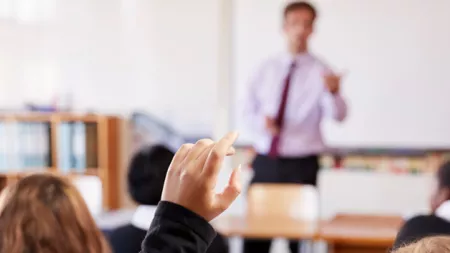OPINION
Max Payne
Max Payne is the Australian Program Associate with Students For Liberty, a global non-profit that spreads the values of libertarianism on campus. He is also a twice former candidate with the Libertarian Party and maintains a keen interest in Austrian economics, classical music and organic gardening.
Libertarians don’t argue a lot about education policy. And yet, ‘school choice’ and ‘decentralised education’ are ideas that unite us with conservatives generally. Empowering parents to homeschool forms a branch of this policy, and indeed many parents have become more interested in homeschooling as Australia’s education standards have slipped and an ideological agenda has emerged within its curriculum.
But the thought ends there – that homeschooling simply represents an antidote to ideological capture within the school system. I think it’s time libertarians thought a bit more deeply about education. Like how entrenched our acceptance of outsourcing education to schools and ‘teachers’ has become. Or the extent to which we have internalised the notion of learning as a regimented and formal process.
Learning is not just books, essays, worksheets and equations, it is the people you meet and converse with, the skills you acquire, the experiences you go through and the interests you take up.
Homeschooling is erroneously thought of as effectively school at home. Parents naturally baulk at the idea of devoting their entire day to home education in a ‘teacher’ role and depriving their children of the social interactions that children enjoy by attending school. Further to this, our cultural conditioning (that manifests as ‘trust the experts’) leads parents to believe that without formal training they are ill-equipped to provide their children with a sufficiently well-rounded education.
In reality, the extent to which formal education as a child is necessary to succeed in life and become competent as an adult is completely overblown. I’d wager that if we simply removed school (primary and secondary) entirely from society without a legislated replacement, we would not go backwards. Quite the opposite in fact.
Learning is not just books, essays, worksheets and equations, it is the people you meet and converse with, the skills you acquire, the experiences you go through and the interests you take up. Our collective obsession with productivity and hours ‘worked’ has spilled onto our unfortunate children, who are similarly subjected to unnecessary years of classroom ‘busy work’ – designed to homogenise student progress.
Homeschooled children spend much less time on focussed classroom-like tasks, but play more and spend more time with their families. Most importantly, they learn and grow at their own pace, following their passions and interests with vigour and an intensity that school students often don’t. Homeschooled children are not socially stunted either – in fact, they tend to exhibit more confidence and assertiveness (particularly with unfamiliar adults) than their age-segregated counterparts.
Australia’s education standards have slipped and an ideological agenda has emerged within its curriculum.
At last year’s Friedman Conference, I was most inspired by the insights of a homeschooling father and advocate who described one instance of his son deciding in his mid-teens he wanted to study science. Despite being mostly uninitiated with the prerequisite maths, within a year he had mastered several textbooks and was ready to begin tertiary level study in that field – a feat school pupils typically take a decade to achieve.
This is all before delving into how hopelessly unprepared school graduates are for adult life – financial literacy, civics, basic practical skills and even interpersonal skills are very much lacking in modern schooling. This continues into tertiary education.
Libertarians and conservatives concerned with ideological capture within education institutions are missing the point – the entire system approaches learning with the same failed mentality that plagues workplaces. More hours spent in formal study does not equate to greater preparedness for employment or adult life in general. On the other hand, the time spent at home playing and with family, following their interests and pursuing their goals, is invaluable.
Politics in the classroom is just the beginning. Our children simply deserve better than what the education system is offering.

